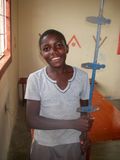19 Feb Telluride AIDS Benefit: Manzini Youth Care Project
[click “Play” to hear Susan’s interview with Ed Hendrikson]
 As the definition of the world shrinks through telecommunications and tragedy, countries become communities like Telluride, with different constituencies but similar challenges. AIDS is one problem we all share. Yes, still.
As the definition of the world shrinks through telecommunications and tragedy, countries become communities like Telluride, with different constituencies but similar challenges. AIDS is one problem we all share. Yes, still.
The Telluride AIDS Benefit is a model nonprofit: the organization asks for very little in monetary support from the greater Telluride region, but puts Telluride on the world map in a good way: TAB’s welcomed embrace extends all the way to Africa.
AIDS may be the worst health calamity since the Black Death of the Middle Ages, on a fast track to becoming the worst pandemic ever. And, according to online research, 10 of the 11 infections that take place every minute around the globe occur in Sub-Sahran Africa, where in some countries teachers, doctors and nurses are dying faster than they can be replaced and treatment ranges from poor to nonexistent.
 In 1999, in response to the crisis in Sub-Saharan Africa, TAB teamed up with the African Mayors Initiative for Community Action on AIDS at the Local Level (AMICAALL) and the United Nations Development Program in a pilot project utilizing a “sister city” approach to combating overwhelming odds. Over the years, the Telluride AIDS Benefit maintained ties with Manzini, though now under a different umbrella. Based on recent data from the 2006–2007 Demographic and Health Survey, with an estimated adult prevalence of 25.9 percent, Swaziland still holds the world’s record for most severe HIV/AIDS epidemic. The scourge poses a serious challenge to the country’s economic development – and its children. Enter the Manzini Youth Care Project.
In 1999, in response to the crisis in Sub-Saharan Africa, TAB teamed up with the African Mayors Initiative for Community Action on AIDS at the Local Level (AMICAALL) and the United Nations Development Program in a pilot project utilizing a “sister city” approach to combating overwhelming odds. Over the years, the Telluride AIDS Benefit maintained ties with Manzini, though now under a different umbrella. Based on recent data from the 2006–2007 Demographic and Health Survey, with an estimated adult prevalence of 25.9 percent, Swaziland still holds the world’s record for most severe HIV/AIDS epidemic. The scourge poses a serious challenge to the country’s economic development – and its children. Enter the Manzini Youth Care Project.
Presently at Sikhunyana in Swaziland, there are 36 boys living under one roof, under the care of a Swazi woman named Sibongile Epsy Simelani. The structure is a bare bones cinder block building with a small courtyard and small garden that Sibongile hoses down every day. In SiSwati, the name Sibongile means “we thank you” and indeed, the 36 boys under her care are thankful for the meals and care she provides. Sikhunyana was completed in 2005 and provides a safe haven for HIV orphans recruited from the streets. According to Ed Hendrikson, medical officer, the funding the Manzini Youth Care Project has received over the past four years helps run the day-to day-activities of the orphanage. Last year, TAB gave MYC $5,500 and that relatively small sum covered about 50 percent of basic costs for meals, maintenance, electricity and water. Hendrikson says that huge savings buys the kids a chance at an education, which he sees as the future of the continent.
To learn more, click the “play” button and listen to Ed Hendrikson’s podcast.


Sorry, the comment form is closed at this time.